
20-02-2026 18:47
 Marc Detollenaere
Marc Detollenaere
Hello Forum,On rotten wood of Fagus, I found some

07-02-2023 22:28
Ethan CrensonHello friends, On Sunday, in the southern part of

19-02-2026 17:49
Salvador Emilio JoseHola buenas tardes!! Necesito ayuda para la ident

19-02-2026 13:50
Margot en Geert VullingsWe found this collection on deciduous wood on 7-2-

16-02-2026 21:25
 Andreas Millinger
Andreas Millinger
Good evening,failed to find an idea for this fungu

08-12-2025 17:37
 Lothar Krieglsteiner
Lothar Krieglsteiner
20.6.25, on branch of Abies infected and thickened

17-02-2026 17:26
 Nicolas Suberbielle
Nicolas Suberbielle
Bonjour à tous, Je recherche cette publication :
Inoperculate asco on eucalyptus bark
Zuidland Peter,
23-08-2023 07:19
I need assistance with the ID of this inoperculate found on eucalyptus bark in a eucalyptus plantation, SE Victoria, Australia; it was also growing on the old bodies of previous generations of the same fungus.
Hymenium is light coloured but the medullary surface is dark green/grey.
Asci are 99-113 x 10um, with Crosiers and Lugol's +ve.
Spores are hyaline, 10.6 - 14.2 x 3.8 - 4.7um and when germinating they have 1-3 septa.
Iodomidotic reaction -ve.
Many thanks
Peter
Hans-Otto Baral,
23-08-2023 08:44

Re : Inoperculate asco on eucalyptus bark
How large are the apos?
The spores look 100% like in Leptodontidium trabinellum. But the apos look quite different. Also the yellow-brown excipulum is a difference. Do the conidia form on the germinating spores?
Do you have living paraphyses on a photo?
The globose cells look like a parasite?

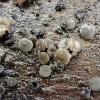
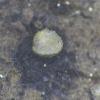
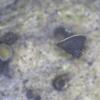
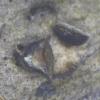
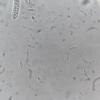
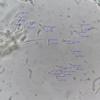
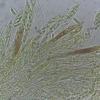
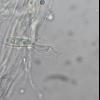
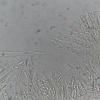
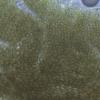
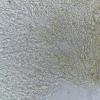
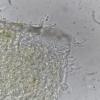
 Globular cells at the rim
Globular cells at the rim